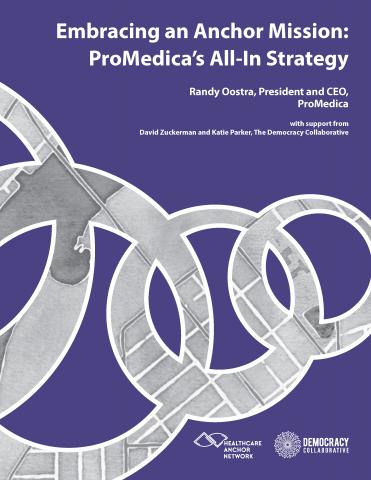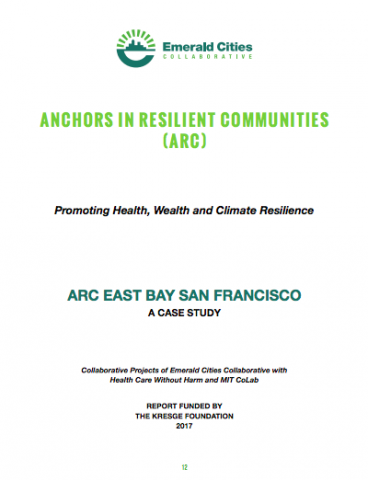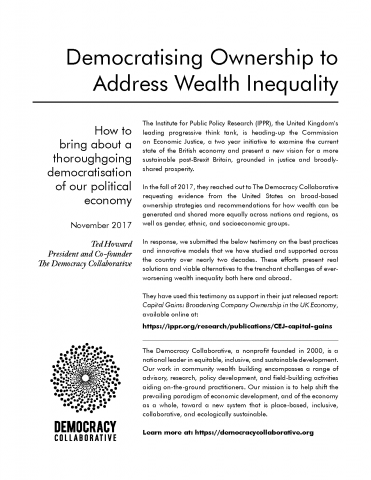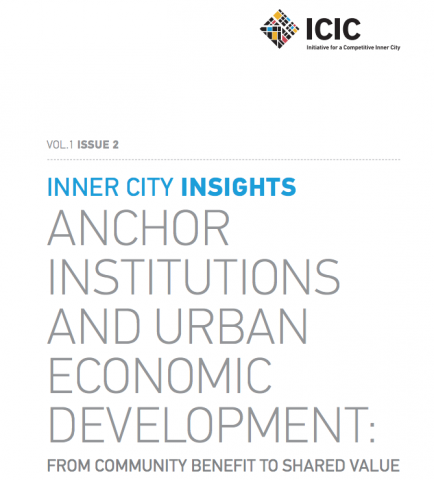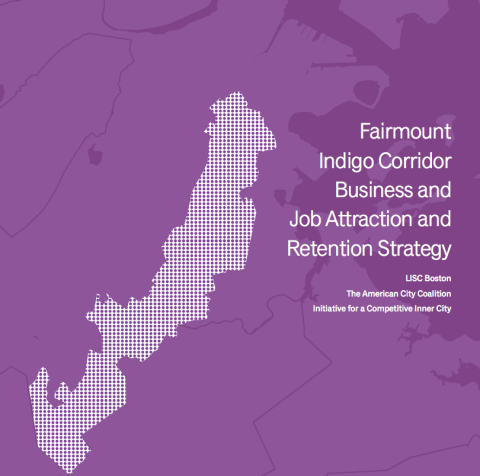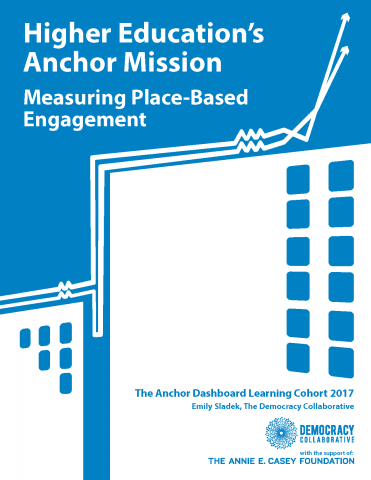Written by Randy Oostra, CEO of ProMedica (a member of the Healthcare Anchor Network) with the support of The Democracy Collaborative's David Zuckerman and Katie Parker, this report offers an in-depth look at how the Toledo, Ohio based health system aligned its institutional operations and clinical practice to better tackle the social determinants of health. From an innovative hospital-owned grocery store in a food desert to investments in preserving affordable housing, this exploration of ProMedica's decade-long journey to understand how their resources as a healthcare anchor could be used for the wellbeing of the communities they serve is a useful guide for hospitals and health systems embarking on similar shifts.
